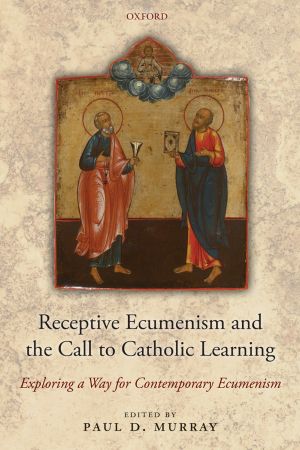- Français
- |
- Booklist
- |
- Week of Prayer
- |
- Links
- Areopagus - a forum for dialogue
- Academic journals
- Acronyms
- Bible tools
- Bibliographies
- Booksellers and publishers
- Churches
- Canadian church headquarters
- Directory of Saskatchewan churches
- Retreat centres
- Saskatchewan church and non-profit agencies
- Ecumenism.net Denominational links
- Anabaptist & Mennonite
- Anglican
- Baptist
- Evangelical
- Independent episcopal
- Lutheran
- Methodist, Wesleyan, and Holiness
- Miscellaneous
- Mormon
- Orthodox (Eastern & Oriental)
- Para-church ministries
- Pentecostal / charismatic
- Presbyterian & Reformed
- Quaker (Society of Friends)
- Roman & Eastern Catholic
- United and uniting
- Documents of Ecumenical Interest
- Ecumenical agencies
- Ecumenical Booklist
- Ecumenical Dialogues
- Glossary
- Human rights
- Inter-religious links
- Justice & peace
- Lectionaries
- Religious news services
- Resource pages
- Search Ecumenism.Net
- |
- Documents
- Ancient & Medieval texts
- Ecumenical Dialogues
- Interreligious
- Anabaptist & Mennonite
- Anglican
- Evangelical
- Lutheran
- Orthodox
- Reformed & Presbyterian
- Roman & Eastern Catholic
- United & Uniting
- Miscellaneous churches
- Canadian Council of Churches (CCC)
- Conference of European Churches (CEC)
- Interchurch Families International Network (IFIN)
- National Council of Churches in Australia (NCCA)
- Lausanne Committee for World Evangelism (LCWE)
- World Council of Churches (WCC)
- Other ecumenical documents
Church traditions
Documents from ecumenical agencies
- |
- Dialogues
- Adventist-Reformed
- African Instituted Churches-Reformed
- Anglican-Lutheran
- Anglican-Orthodox
- Anglican-Reformed
- Anglican-Roman Catholic
- Anglican-United/Uniting
- Baptist-Reformed
- Disciples of Christ-Reformed
- Disciples of Christ-Roman Catholic
- Evangelical-Roman Catholic
- Lutheran-Mennonite
- Lutheran-Mennonite-Roman Catholic
- Lutheran-Reformed
- Lutheran-Roman Catholic
- Mennonite-Reformed
- Mennonite-Roman Catholic
- Methodist-Reformed
- Methodist-Roman Catholic
- Oriental Orthodox-Reformed
- Orthodox-Reformed
- Orthodox-Roman Catholic
- Pentecostal-Reformed
- Prague Consultations
- REC-WARC Consultations
- Roman Catholic-Lutheran-Reformed
- Roman Catholic-Reformed
- Roman Catholic-United Church of Canada
- |
- Quick links
- Canadian Centre for Ecumenism
- Canadian Council of Churches
- Ecumenical Shared Ministries
- Ecumenism in Canada
- Interchurch Families International Network
- International Anglican-Roman Catholic Commission for Unity and Mission
- Kairos: Canadian Ecumenical Justice Initiatives
- North American Academy of Ecumenists
- Prairie Centre for Ecumenism
- Réseau œcuménique justice et paix
- Week of Prayer for Christian Unity
- Women's Interchurch Council of Canada
- World Council of Churches
- |
- Archives
- |
- About us

Receptive Ecumenism and the Call to Catholic Learning: Exploring a Way for Contemporary Ecumenism
Murray, Paul D., ed.
Oxford University Press, 2008
ISBN: 978-0-1992-1645-1,
Subject:
Now available in paperback
In January 2006, a colloquium on "receptive ecumenism" was held at Durham University, England. The colloquium brought together 150 theologians, ecumenists and ecclesiastics from across the traditions (and a great many of them of international standing) in order to explore a fresh way of conceiving the ecumenical task fitted for the contemporary situation – referred to as Receptive Ecumenism.
The essential principle behind Receptive Ecumenism is that the primary ecumenical responsibility is to ask not “What do the other traditions first need to learn from us?” but “What do we need to learn from them?” The assumption is that if all were asking this question seriously and acting upon it then all would be moving in ways that would both deepen our authentic respective identities and draw us into more intimate relationship.
Publisher's description:
This volume proposes a fresh strategy for ecumenical engagement - ‘Receptive Ecumenism’ - that is fitted to the challenges of the contemporary context and has already been internationally recognised as making a distinctive and important new contribution to ecumenical thought and practice. Beyond this, the volume tests and illustrates this proposal by examining what Roman Catholicism in particular might fruitfully learn from its ecumenical others.
Challenging the tendency for ecumenical studies to ask, whether explicitly or implicitly, ‘What do our others need to learn from us?’, this volume presents a radical challenge to see ecumenism move forward into action by highlighting the opposite question ‘What can we learn with integrity from our others?’
This approach is not simply ecumenism as shared mission, or ecumenism as problem-solving and incremental agreement but ecumenism as a vital long-term programme of individual,communal and structural conversion driven, like the Gospel that inspires it, by the promise of conversion into greater life and flourishing. The aim is for the Christian traditions to become more,not less, than they currently are by learning from, or receiving of, each other’s gifts.
The 32 original essays that have been written for this unique volume explore these issues from a wide variety of denominational and disciplinary perspectives, drawing together ecclesiologists, professional ecumenists, sociologists, psychologists, and organizational experts.


